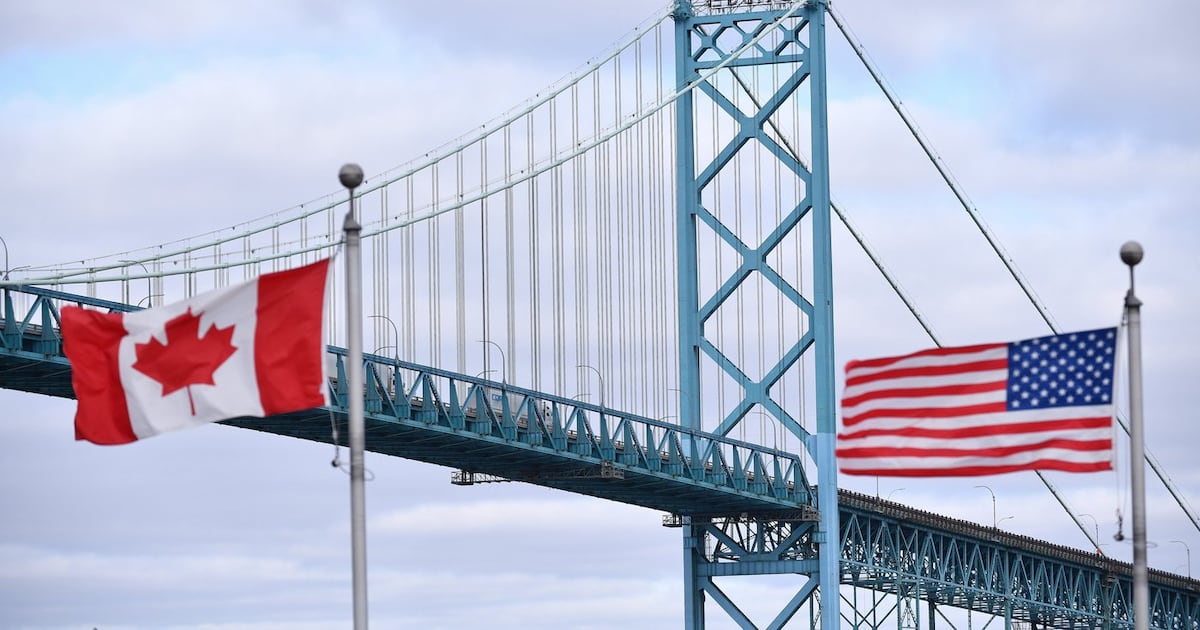Industry leaders say they are disappointed with the additional 10 per cent tariff on Canadian goods announced Saturday by U.S President Donald Trump.
There is currently a 35 per cent tariff on Canadian imports not compliant with the Canada-U.S.-Mexico Agreement, and 25 to 50 per cent on various products including steel, aluminum, copper, softwood lumber and automobiles.
Jean Simard, president and chief executive officer of the Aluminum Association of Canada, told CTV News Channel on Sunday that this announcement is “very unfortunate and uncalled for.”
“It’s part of a never ending story that started months ago with the U.S. trade war with the rest of the world,” Simard said.
“I don’t think it’s going to add anything to the situation that the U.S. will be facing moving into the fall season with prices that will be increased by these stacked up tariffs on everything that moves into the U.S.”
A $75-million television ad from the Ontario government, featuring remarks by former U.S. President Ronald Reagan on tariffs from April 25, 1987 is what prompted Trump to initially announce he was ending trade discussions with Canada.
Despite this, Premier Doug Ford wrote on X that he would pull the ad only after it aired during the first two World Series games.
Our intention was always to initiate a conversation about the kind of economy that Americans want to build and the impact of tariffs on workers and businesses. We’ve achieved our goal, having reached U.S. audiences at the highest levels. I’ve directed my team to keep putting our…
— Doug Ford (@fordnation) October 24, 2025
“Because of their serious misrepresentation of the facts, and hostile act, I am increasing the Tariff on Canada by 10 per cent over and above what they are paying now,” Trump wrote on Truth Social.
“Their Advertisement was to be taken down, IMMEDIATELY, but they let it run last night during the World Series, knowing that it was a FRAUD,” the post reads.
Though details remain unclear on when or how the additional 10 per cent increase will be applied, Simard says the U.S. will also feel the impact, noting that 2.7 million of the 3.3 million tons of aluminum produced in Canada goes to the U.S.
“If it adds up to the already existing 50 per cent (…) we might see the same phenomenon that unfolded in the course of the months of July and August, where our metal started moving towards Europe instead of the U.S,” Simard said.
“Basically the U.S. found itself in a situation where 45 per cent of Canada’s metal that used to go to the border found a new direction for a market that wants our aluminum as much as the U.S. wants it.”
David Adams, president and CEO of Global Automakers of Canada, echoes Simard’s concern, saying the additional tariff will also hurt American industries.
“When they’re not working collaboratively and cooperatively with their CUSMA or USMCA trade partners, it actually ends up making their own industries that much less competitive on the world stage,” Adams told CTV News Channel on Sunday.
“The tariffs themselves have led to some of the activity that we’ve seen over the recent weeks in terms of options that different companies have chosen to exercise.”
Both Simard and Adams say the ongoing, unresolved trade tensions between Canada and the U.S. are creating greater uncertainty about the future of cross-border commerce.
“We’re dealing with an increasingly challenging administration, and it makes it that much more difficult for Prime Minister Mark Carney and his officials, the cabinet ministers, to work at landing a deal, both in the short term and long term,” Adams said.
“The Prime Minister needs to continue to do what he has been doing, which are looking at what our other options are with our trading partners that are abiding by the provision of the trade agreements.”

